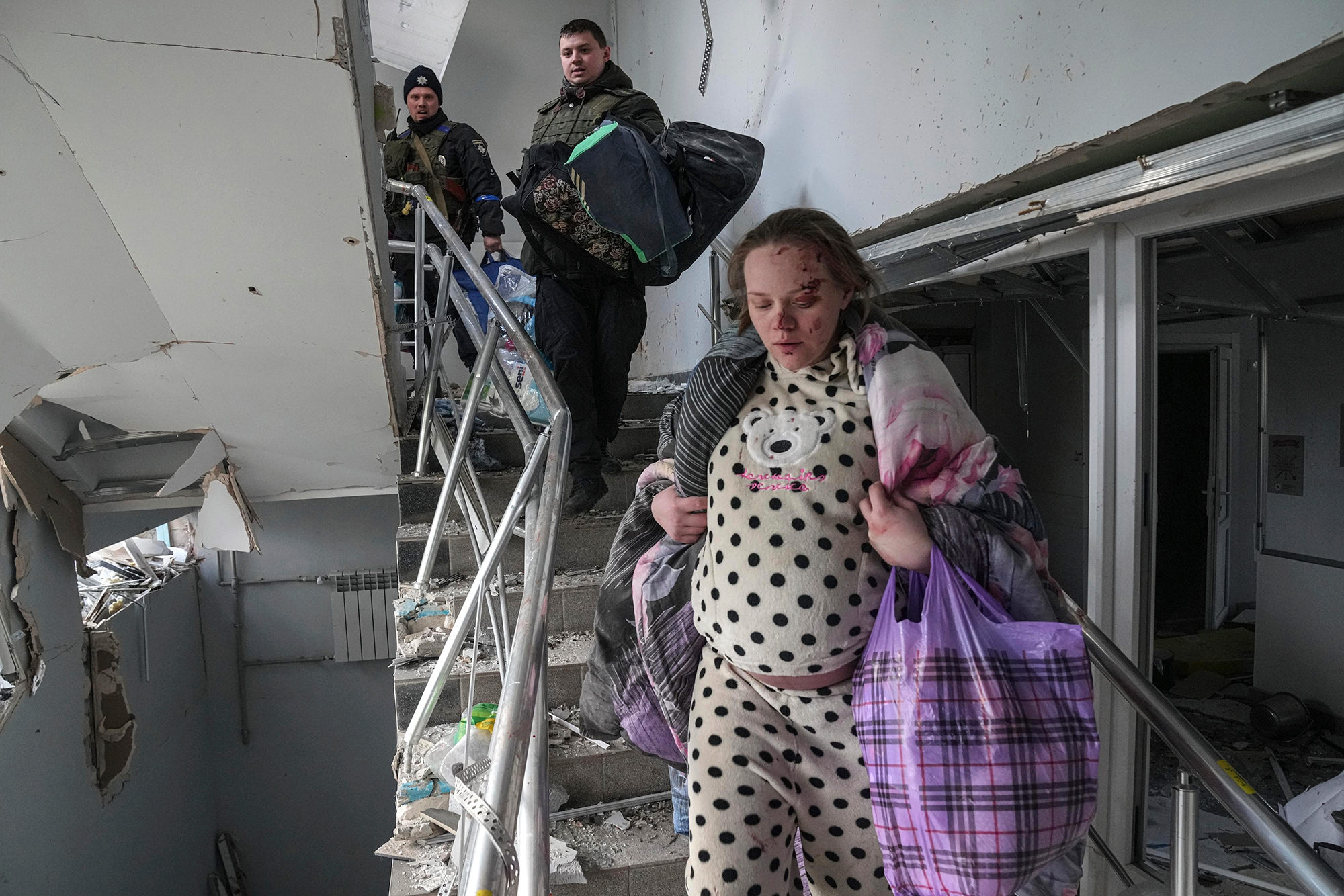
Mariana Vishegirskaya was among the women at the Mariupol maternity hospital that was bombed earlier this week.
She survived the shelling and delivered a baby girl in another hospital on Friday.
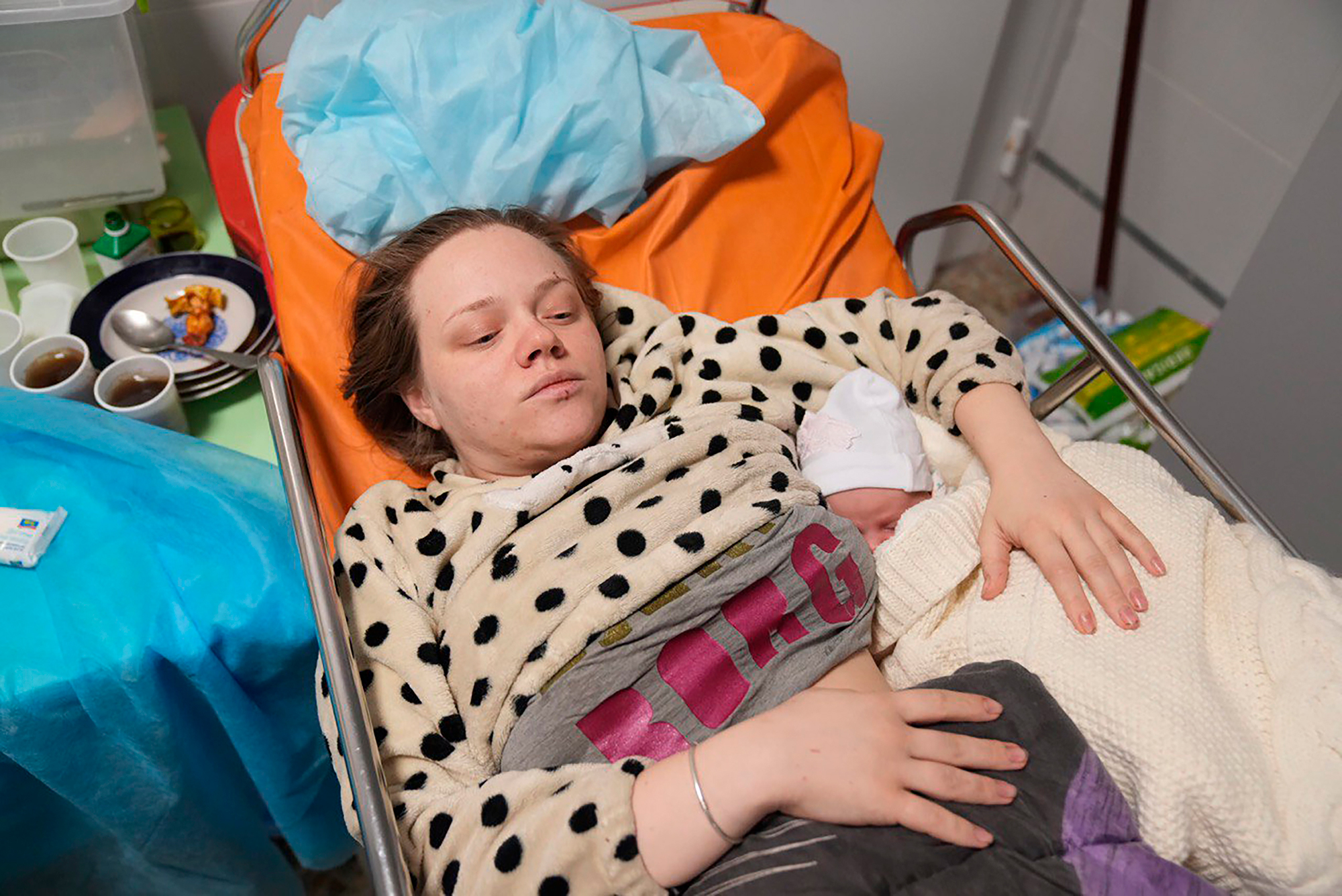
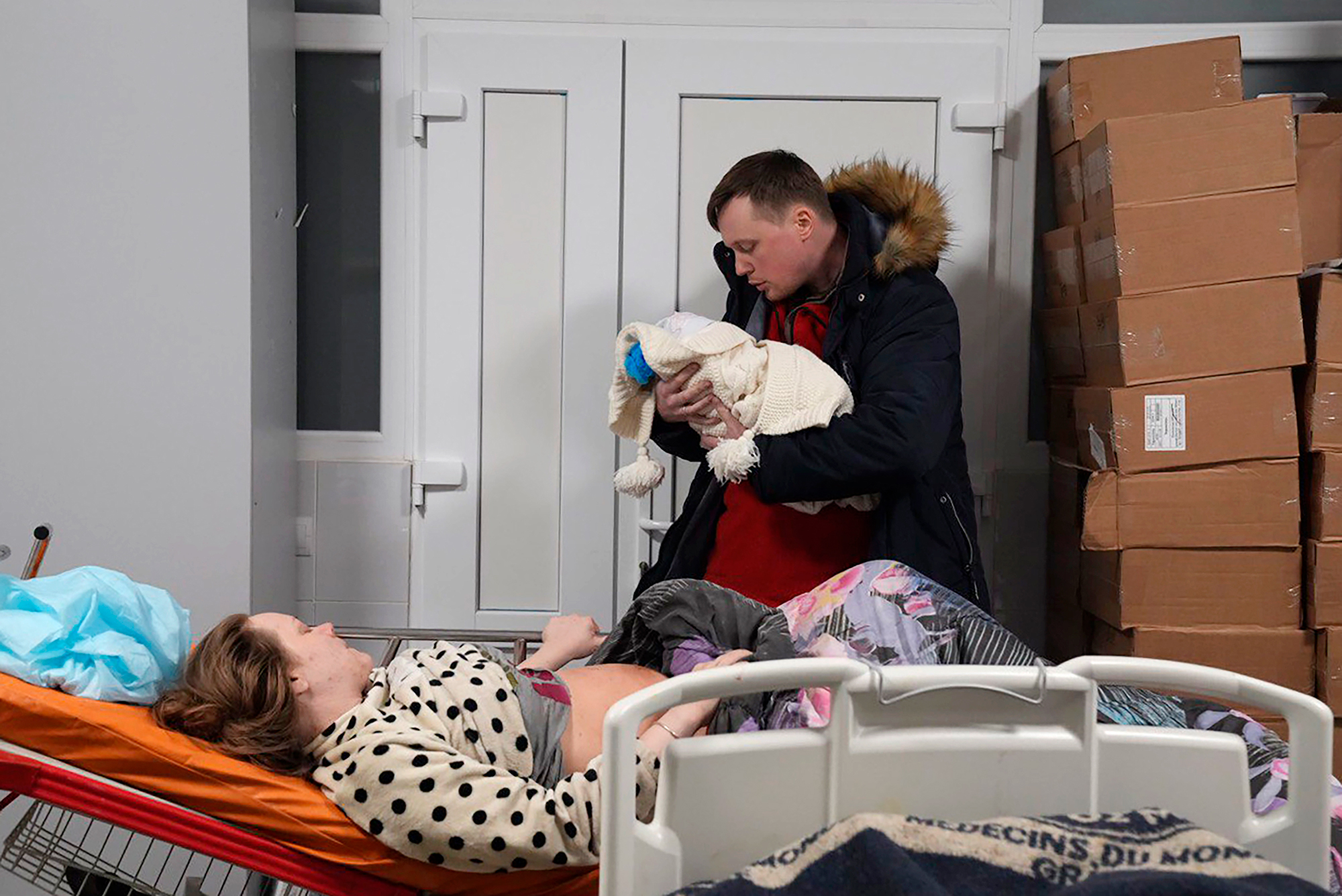
By Aditi Sangal, Adrienne Vogt, Meg Wagner, Melissa Macaya, Julia Hollingsworth, Jessie Yeung, Adam Renton, Jeevan Ravindran and Jason Kurtz, CNN

Mariana Vishegirskaya was among the women at the Mariupol maternity hospital that was bombed earlier this week.
She survived the shelling and delivered a baby girl in another hospital on Friday.


From CNN's Betsy Klein
The White House said Friday that there are “strong indications” that Russia is committing war crimes in Ukraine, stopping short of a declaration, which legally requires an investigation before such an assessment can be made.
“We have all seen the devastating images coming out of Ukraine and are appalled by Russia’s brutal tactics. Pregnant women on stretchers, apartment buildings shelled, families killed while seeking safety from this terrible violence. We are also seeing reports of other types of potential abuses, including sexual and gender-based violence,” White House deputy press secretary Andrew Bates told reporters aboard Air Force One.
Bates continued: “These are disgusting attacks. Civilian casualties are increasing. If Russia is intentionally targeting civilians, that would be a war crime. And as we are all seeing on live television, evidence is mounting and we are documenting it as it takes place. There are strong indications that this is occurring and that the heinous way Russia is prosecuting this war will result in war crimes.”
The US, he added, supports the human rights activists, civil society, and independent media documenting, collecting and exposing evidence of possible war crimes, human rights abuses and violations of international humanitarian law.
The US will share that evidence with allies and partners and will “support accountability” with every tool available, “including prosecutions when appropriate,” Bates said.
US Ambassador to the UN Linda Thomas-Greenfield became the highest-ranking US official to say that actions committed by Russia against the Ukrainian people constitute war crimes, telling the BBC Thursday, "They constitute war crimes; there are attacks on civilians that cannot be justified by any — in any way whatsoever.”
Bates also said that US President Joe Biden's warning to Russia over any potential use of chemical weapons was "unmistakable."
"You heard from the President clearly that if Russia uses chemical weapons there will be severe consequences," Bates said. "I don't have anything to preview on that front, but his meaning was unmistakable."
Bates also pointed to the recent warnings from US officials, including press secretary Jen Psaki, that Russia could use chemical weapons as part of a false flag operation to justify further violence.
"The truth is Russia is the only question in the equation with a chemical and biological weapons program in violation of international law," Bates said.
As the United Nations estimates at least 2.5 million people have fled Ukraine, a Romanian family is hosting nearly three dozen Ukrainian refugees in Adunații-Copăceni, which is outside of the capital city of Bucharest.
One of them, 14-year-old Alyona Batochka, told CNN about her family's journey to leave Kharkiv, Ukraine.
"It took us five days to leave our house, to leave ... my dad, our families, my school, my dancing team, and it's really hard to us because our family is in Kharkiv now," she told CNN's Miguel Marquez. Neighbors are taking care of her cat as well, she said.
She said she feels very supported in Romania.
"Please stop war," Batochka said she would tell Russian President Vladimir Putin right now.
She said unequivocally that she will return to Ukraine, but she doesn't know when exactly that will happen.
"I'll return to my home, to my father. I really hope, I really hope," she said.
Marquez also spoke to a Nigerian student in the house who played for a local Ukrainian soccer club.
He said the situation was "incomprehensible" and "everything is just hopes and prayers" right now. He has been at the house for four days and is planning on getting on a plane to reunite with his family tomorrow.
He lauded the generosity of the Romanians housing him and 30 other people.
Here's a look at where Ukrainian refugees are going:
From CNN's Elle Kaufman
Russian forces have launched more than 800 missiles of “all stripes, wide varieties, and sizes” since the beginning of their invasion of Ukraine, a senior US defense official told reporters Friday.
About half of the missile launches have come from locations inside Ukraine, and about half have come from Russia and Belarus combined, the official added.
From CNN's Kristina Sgueglia
Rosemary DiCarlo, UN undersecretary-general for political affairs, briefed the Security Council Friday and delivered a jarring report of civilian casualties while also citing credible reports of Russian forces using “cluster munitions” in “indiscriminate attacks.”
The Office of the High Commissioner for Human Rights (OHCHR) has marked 1,546 civilian casualties, including 564 killed 982 injured, though they estimate the number is higher, DiCarlo said.
“OHCHR has received credible reports of Russian forces using cluster munitions, including in populated areas. Indiscriminate attacks, including those using cluster munitions, which��are of a nature to strike military objectives and civilians or civilian objects without distinction, are prohibited under international humanitarian law,” she said.
WHO has verified 26 attacks on health facilities, causing 12 deaths and 34 injuries, she added, saying, “we condemn such attacks without reservation.”
“We cannot emphasize it enough: The targeting of civilians, of residential buildings, hospitals, schools, kindergartens, is inexcusable and intolerable ... we are scaling up humanitarian aid in areas where security permits,” said DiCarlo.
Safe passage “must continue,” she said, noting that more than 51,000 people have reportedly passed through five of the six agreed-upon passages.
“Civilians should be duly and timely informed of the possibility to leave the concerned areas and on a voluntary basis and in the direction they choose,” she said.
The number of refugees from Ukraine has reached 2.5 million people and is increasing by the day, she said.
From CNN's Lindsay Isaac
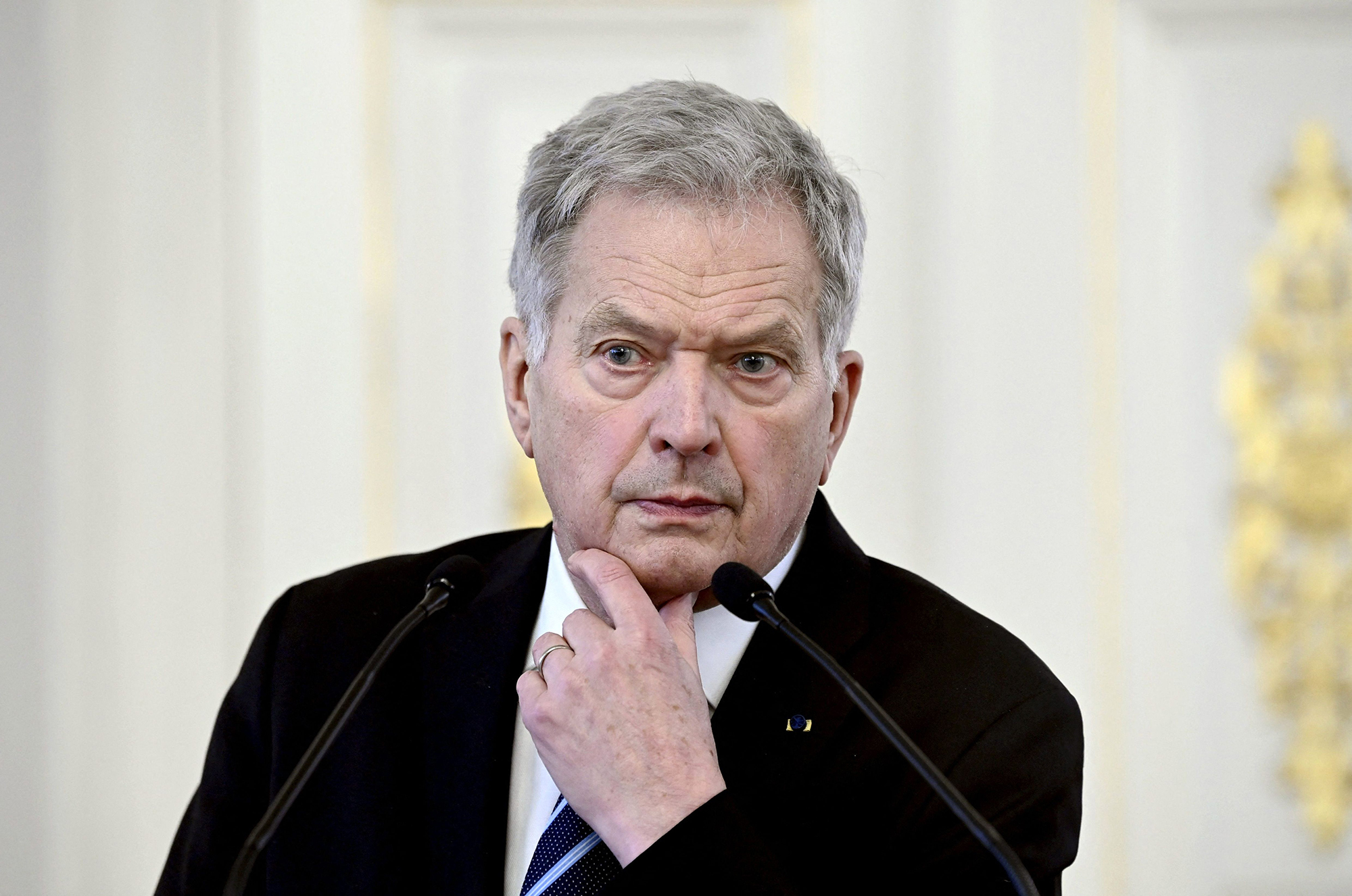
On Friday, Russian President Vladimir discussed the Ukraine war with Finnish President Sauli Niinistö.
According to the Kremlin, Putin “explained in detail the reasons for the Russian special military operation to protect Donbas, its goals and objectives, and also informed Niinistö of the ongoing negotiations with Ukrainian representatives.
“The Presidents paid special attention to humanitarian issues and the measures taken to ensure the safety of the civilian population, the organization of evacuation corridors for the evacuation of civilians from the clashes zone,” the Kremlin said.
Niinistö, meanwhile, told Putin that an immediate ceasefire is needed to safely evacuate civilians through evacuation corridors in Ukraine.
During the hour-long conversation, Niinistö warned that the “worsening catastrophe and the deep human suffering in Ukraine,” is strongly influencing western public opinion, according to Finland’s presidential office.
“In addition, President Niinistö drew attention on the safety and security of the nuclear energy facilities in Ukraine,” the office said.
Niinistö also relayed the Ukrainian President’s preparedness to talk directly with Putin following a conversation he had earlier Friday with Volodymyr Zelensky.
The Finnish president has been referred to as the "Putin Whisperer" by western media because of the neutral relationship he has maintained with Russia while sharing a border.
The leaders agreed to remain in touch on Ukraine and the “Russian-Finnish agenda.”
From CNN's Kaitlan Collins and Manu Raju
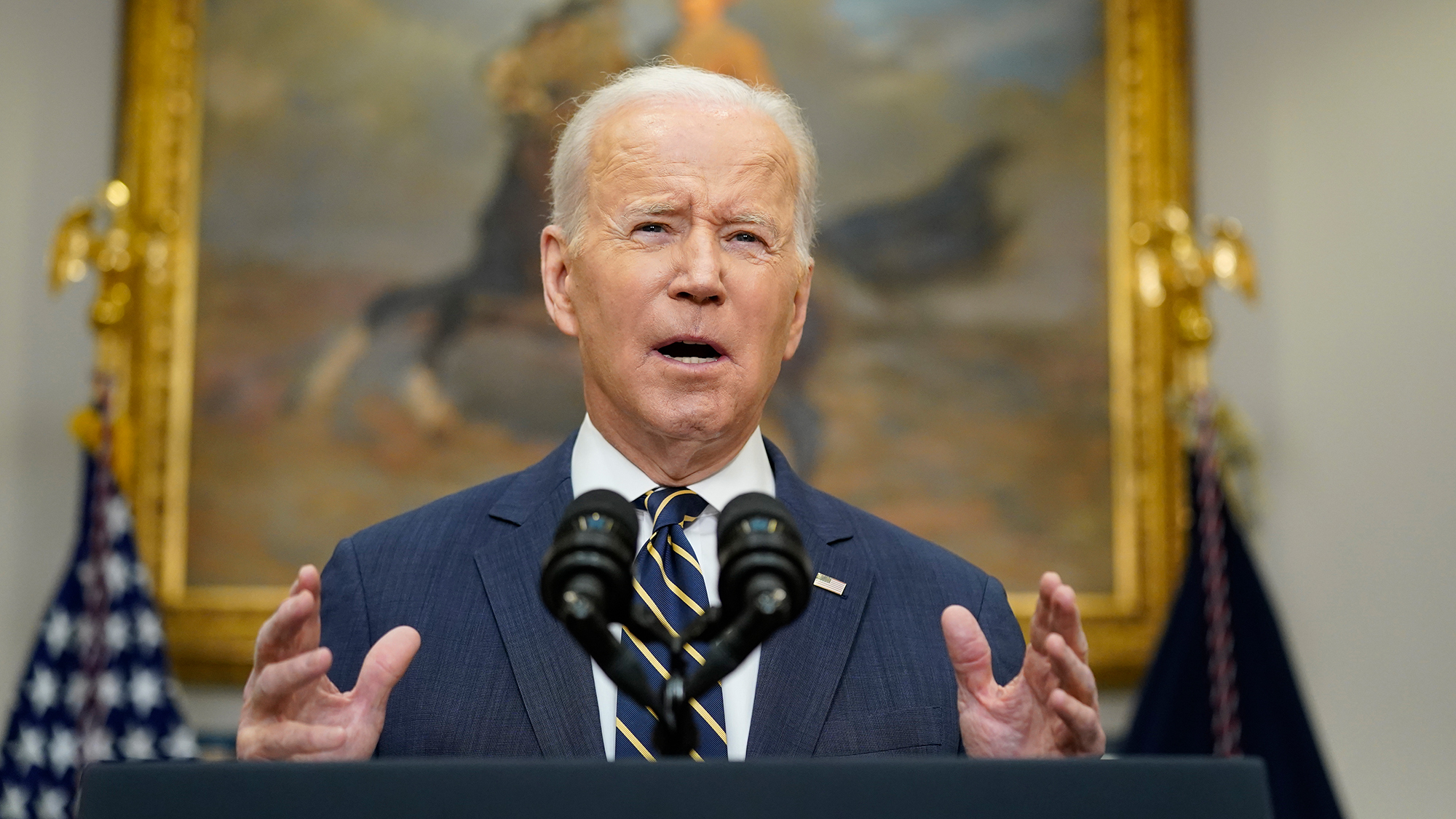
US President Joe Biden announced Friday that the US, along with the G7 and European Union, will call for revoking "most favored nation" status for Russia, referred to as permanent normal trade relations in the US.
Biden said the move would hold Russian President Vladimir Putin "even more accountable for his aggression against Ukraine."
"Each of our nations will take steps to deny 'most favored nation' status to Russia. A most favored nation status designation means two countries have agreed to trade with each other under the best possible terms — low tariffs, few barriers to trade and the highest possible imports allowed," Biden said.
The US President explained what the move means: "In the United States, we call this permanent normal trade relations, PNTR, but it's the same thing. Revoking PNTR for Russia is going to make it harder for Russia to do business with the United States and doing it in unison with other nations that make up half of the global economy will be another crushing blow to the Russian economy that's already suffering very badly from our sanctions."
The step requires an act of Congress. Following Biden's announcement, House Speaker Nancy Pelosi said the House will take the legislation next week "to formalize this revocation, and it is our hope that it will receive a strong, bipartisan vote.”
The move was one of multiple new actions on trade expected to be made by the Biden administration toward Russia. The United States will also ban imports of alcohol and seafood, such as vodka and caviar, from Russia, a White House official told CNN.
Each country is expected to implement this measure based on its own national processes. Sources familiar with the move made note of congressional efforts to revoke Russia's permanent normal trade relations. Congress is expected to introduce legislation following Biden's announcement.
CNN reported Thursday that bipartisan talks in the Senate had been taking shape to take more aggressive action on Russia's trade status — after the White House effectively watered down the House-passed bill banning importing Russian oil, natural gas and coal into the US.
Read more about the announcement here.
From CNN's Sam Fossum
US President Joe Biden warned on Friday that Russia will pay a "severe price" if the country uses chemical weapons in Ukraine.
"I'm not going to speak about the intelligence, but Russia will pay a severe price if they use chemicals," Biden told CNN's Arlette Saenz following remarks announcing further sanctions and export controls against Russia.
The US government has previously found that the Russian government used chemical weapons in both the 2020 poisoning of Russian opposition leader Alexey Navalny and in 2018 against Sergei and Yulia Skripal in England.
Both determinations by the US led to sanctions under the Chemical and Biological Weapons Control and Warfare Elimination Act, which requires the President to impose economic and diplomatic sanctions if a country is found to have used chemical weapons.
Additionally, Syria's Bashar al-Assad, whose regime is supported by Russia, used chemical weapons in an attack in 2017.
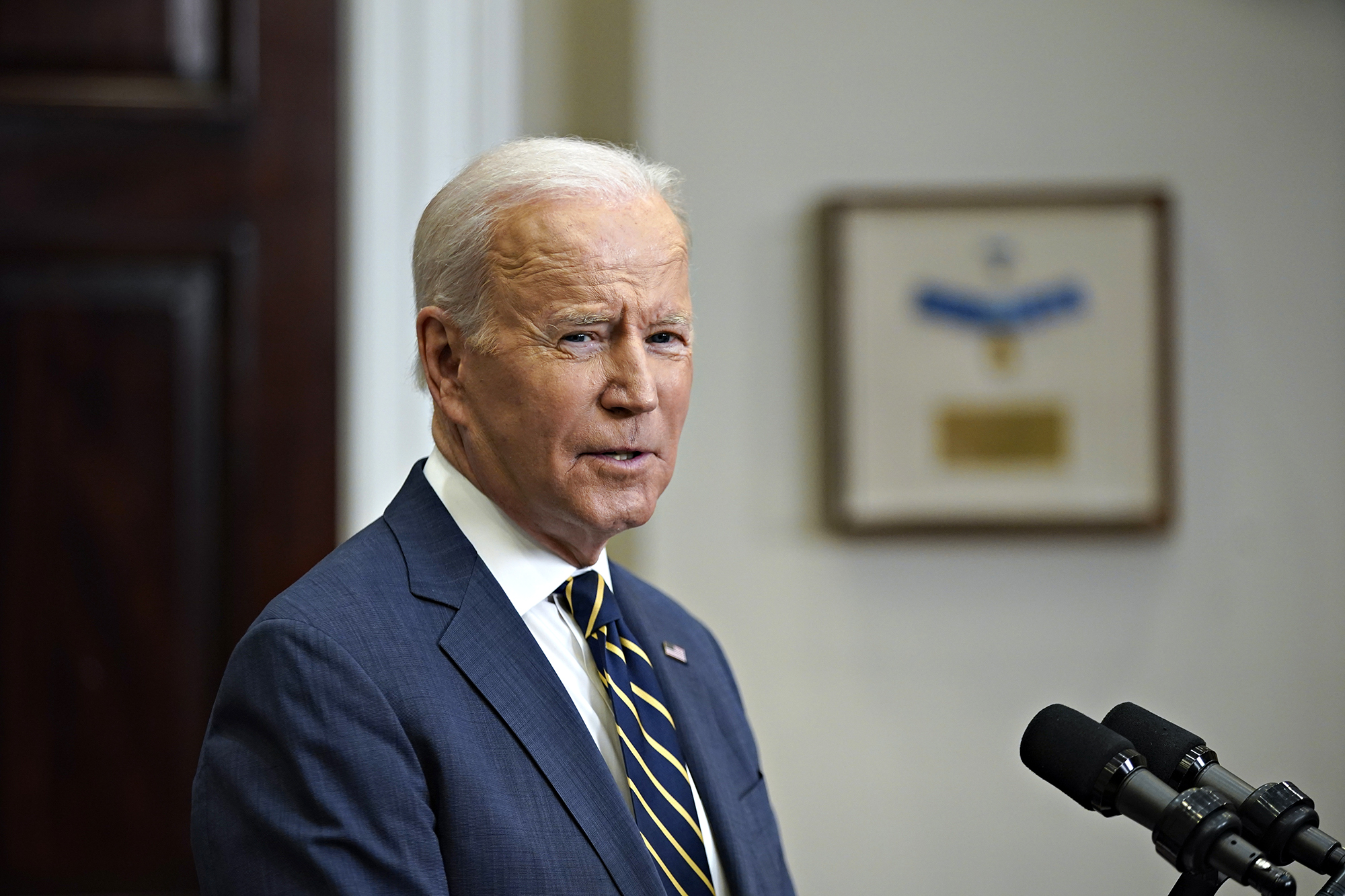
US President Joe Biden said the G7 is adding sanctions to more Russian oligarchs and their families as the invasion of Ukraine continues.
"The G7 also stepping up pressure on corrupt Russian billionaires. We're adding new names to the list of oligarchs and their families that we're targeting, and we're increasing coordination among the G7 countries to target and capture their ill-begotten gains," Biden said at the White House.
"They support Putin. They steal from the Russian people, and they seek to hide their money in our countries. They're part of that kleptocracy that exists in Moscow, and they must share in the pain of these sanctions," he said.
Biden said Russian imports of seafood, vodka and diamonds will be banned.
"While we're going after their super-yachts and their vacation homes, and worth hundreds of millions of dollars, we're also going to make it harder for them to buy high-end products manufactured in our country, banning the export of luxury goods to Russia. They're also the latest steps we're taking, but they're not the last steps we're going to take," he continued.



